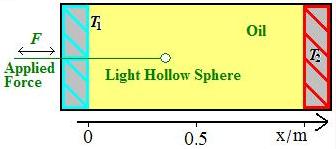 Stephen Hawking's Final Theory On Many Worlds
Stephen Hawking's Final Theory On Many WorldsLike sex, Stephen Hawking was and is mainly a cheap way to obtain publicity. They still publish...
 Phil/Evo Fundaments Of Our Deceiving In Denial, Justifying With Obvious Lies II: The Very Bottom
Phil/Evo Fundaments Of Our Deceiving In Denial, Justifying With Obvious Lies II: The Very BottomAny justification is fundamentally deception because there is no link from fundamental meaninglessness...
 Symmetry & Relativity, Sexy Virtual Reality (VR) In Modern Relativity Theory - All For Everybody
Symmetry & Relativity, Sexy Virtual Reality (VR) In Modern Relativity Theory - All For EverybodyRelativity is a form of symmetry and for that reason already of fundamental importance for science...
 Energy Is Not A Substance And How To Easily Understand This
Energy Is Not A Substance And How To Easily Understand ThisEnergy is not a substance, not something in the sense of “some thing”. Energy often appears...









